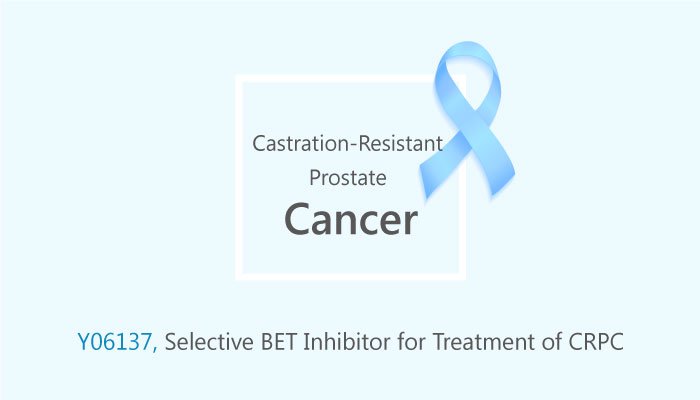Prostate cancer arises as an androgen driven disease. Therefore the mainstay of systemic therapy for patients with advanced disease is androgen deprivation therapy. Despite of significant responses, nearly all patients ultimately progress and castration resistance ensues. Castration resistant prostate cancer therefore represents a stage in the continuum of the disease. Castration resistant prostate cancer is defined by consecutive rises in serum prostate specific antigen levels and progression of metastatic spread in the setting of castrate levels of testosterone.
Nowadays, the bromodomain and extra-terminal (BET) family proteins gain increasing interest as drug targets for treatment of castration-resistant prostate cancer. BET family proteins, including BRD2, BRD3, BRD4, and BRDT, bind to acetylated lysines via their tandem domains (BD1 and BD2) to regulate gene transcription.The BET family proteins are epigenetic “readers” and play a key role in the regulation of gene transcription. BET proteins are attractive therapeutic targets for cancer and other human diseases.
Maofeng Zhang, et al found that Y06137 bound to the BRD4(1) bromodomain with the Kd value of 81 nM. Y06137 exhibited excellent selectivity profiles for BET bromodomains over the other non-BET bromodomains in the thermal shift assay. Y06137 also potently inhibited cell growth, colony formation, and the expression of androgen receptor, androgen receptor regulated genes, and MYC in prostate cancer cell lines. Besides, Y06137 demonstrates therapeutic effects in a C4-2B CRPC xenograft tumor model in mice. Y06137 exhibited promising therapeutic effects in a C4-2B castration-resistant prostate cancer mouse xenograft model. In summary, Y06137 represents a new class of compounds for the development of potential therapeutics against castration-resistant prostate cancer. Y06137 may serve as a new lead compound for further optimization for treatment of castration-resistant prostate cancer.

Reference:
J Med Chem. 2018 Apr 12;61(7):3037-3058.